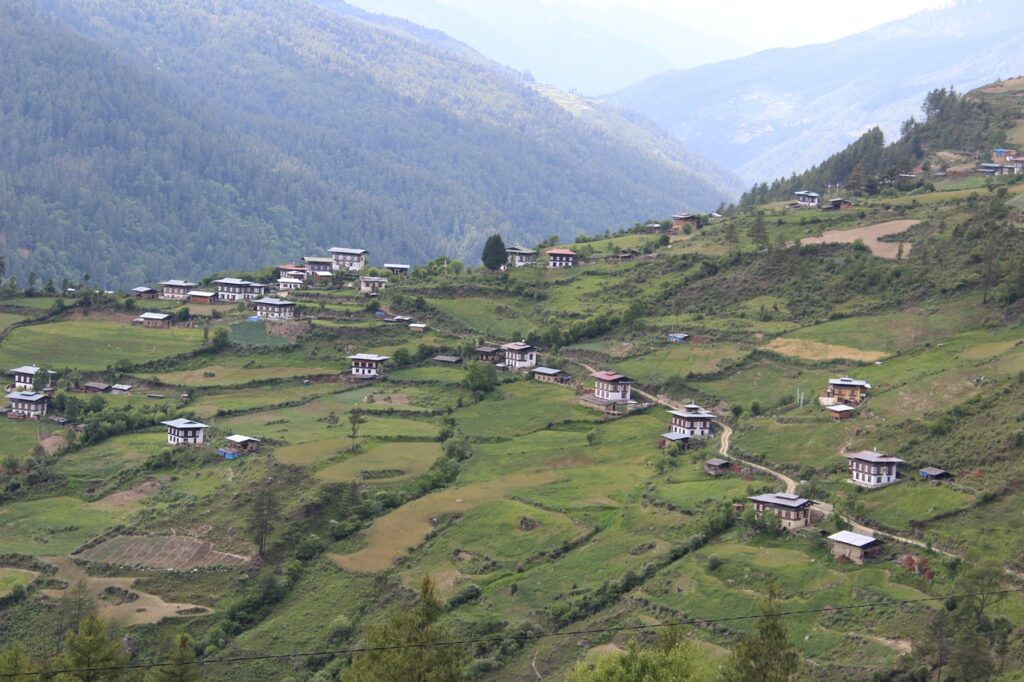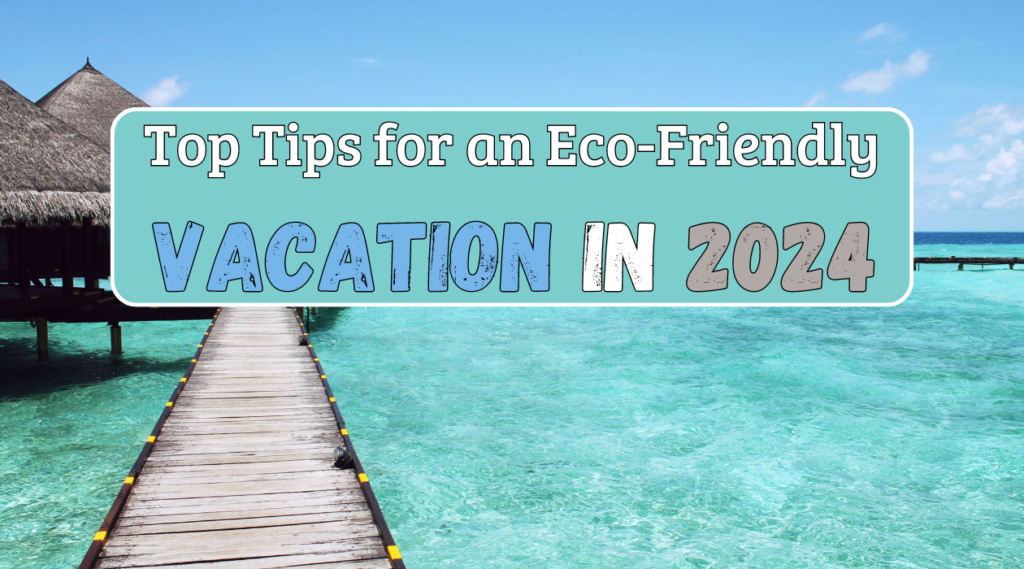Traveling lets us see amazing places and try new foods. But, it can harm the planet. For example, leaving trash in beautiful spots or the pollution from long flights. Yet, more and more people are trying to cut down on this damage, even when they’re on holiday. Tips for eco-friendliness cover everything, from how we travel and where we stay to what we do and eat. By doing this, we can make a big difference.
Driving alone in your car? If you carpool, you’ll cut down on everyone’s carbon footprint. This is important because the average car releases a lot of CO2 if it’s just one person driving. Also, airplanes create a lot of pollution. A large part of the carbon emissions from tourism is because of flying. Specifically, takeoffs and landings are the worst. So, opting for a train journey can greatly help the planet. It’s much better than driving, flying, or even traveling by cruise ship.
When it comes to places where people stay on their trips, these, too, can be better for the environment. In fact, where tourists stay makes up a sizable part of the pollution from tourism. Choosing green places to stay can also make a large positive impact.
Sustainable Travel Destinations

Choosing the right place to travel can help the planet. Look for destinations that care about the environment. For example, Costa Rica protects a lot of its land. And Norway uses a lot of clean energy, like water and wind, for most of its power.
Choosing Eco-Friendly Cities
Many cities focus on being green. Singapore is the only country to get a top green certification from the Global Sustainable Tourism Council. Vancouver is also a top leader in North America for being green.
Traveling in the Off-Season
Big cities can get crowded and not so green sometimes. But if you visit them when it’s not busy, you help them be more eco-friendly. Plus, you get better deals and help local people by traveling when they need it most.
Second-City Traveling
Don’t just go to the famous places. Visiting smaller cities is also great. It helps you find new eco-friendly spots that most tourists don’t see.
Visiting Post-Disaster Areas
Natural disasters really hurt places that rely on tourism. Sometimes, visiting these areas can help them get back on their feet. It supports the local economy and recovery efforts. This can make a big difference.
Eco-Conscious Accommodations

Your choice of a place to stay when traveling has a big impact on the environment. About 1% of the world’s emissions come from where we stay. Some places say they’re helping the planet when they’re not really doing much. This is called greenwashing.
Beware of Greenwashing
There are different ways to tell if a place is truly sustainable. For overall standards, the Global Sustainable Tourism Council (GSTC) is a key player. They check that places do good for the environment and communities before giving them a green stamp.
Booking on Sustainable Travel Websites
Big booking sites often fall short for eco-conscious travelers. But, options like Bookitgreen and Bookdifferent are stepping up. They make it easier to find accommodations that are truly green.
Energy-Efficient Accommodations
Green stays are also smart about their energy use. They embrace things like solar power and energy-saving tech. These choices cut down on the harm to our planet.
Hostels: A Green Accommodation Option
Hostels are good for both the wallet and the planet. Sharing spaces means using less water and energy. Because of this, they’re a better choice for our Earth than many hotels.
Tips for an Eco-Friendly Vacation

When planning your eco-friendly travel, think about where you stay. Ask about the place’s green efforts before booking. This includes things like recycling, using renewable energy, and saving water. Also, how they work with the local community shows if they care about the environment. Choosing places that help the local economy and environment is important for responsible tourism.
Staying at family-owned places, eating at local spots, and buying local products is great. It supports the local economy and keeps the area’s culture and nature alive. Adding these eco-friendly travel tips to your list will make a big difference. You’ll lower your impact on the planet and have a more meaningful trip.
Reducing Carbon Emissions
Aviation causes 2% of the world’s carbon dioxide emissions. When picking how to travel next, think about this. Choose direct flights to cut down on fuel use. Look for tools that show your flight’s emissions. You can then pick carbon offset options to help fight climate change.
Participate in Carbon Offset Programs
Carbon offset programs help you balance out your travel’s environmental impact. By choosing this, you fund projects that lower carbon dioxide in the air. These projects focus on renewable energy, planting trees, or other green actions. This way, you lessen the harm of your journey on the planet.
Train Travel
Trains are very eco-friendly, using less energy than other travel methods. For long trips, they cut down your carbon footprint a lot. High-speed and electric trains make train travel even better for the planet. So, consider taking a train on your next adventure.
Electric Car Rentals
Road trips with electric cars are great for the environment. They reduce pollution and lower your trip’s carbon impact. Even though making and charging these cars emits some carbon, electric cars have no tailpipe emissions. This improves air quality and helps the Earth.
Minimizing Waste
Each year, over 380 million tons of plastic are made. Microplastics now cover the earth, posing a big risk to health. One key tip for zero-waste travel is to bring your own toiletries. This helps a lot in reducing plastic waste. Nowadays, more hotels support travelers who bring reusable items. They aim to cut down their impact on the planet.
Bring Your Own Toiletries
Carrying your own toiletries is a smart move for the eco-conscious traveler. It means you won’t need to use plastic bottles or containers. This helps to reduce plastic waste and save resources. Lots of hotels are getting on board, pushing for zero-waste travel.
Avoid Single-Use Plastics
Items like water bottles, plastic bags, and straws can hurt the sea. They end up in oceans and damage life there. When you travel, swap single-use items for things like a water bottle and tote bag. This effort is a big win for the planet and pushes sustainable travel habits.
Responsible Tourism
The world has seen a big increase in tourists, with over 1.4 billion now traveling internationally. This growth brings challenges to responsible travel. Overtourism is a problem, with too many visitors going to the same places. It can hurt local resources, harm nature, and disturb people’s lives. To lessen this impact, travelers can choose less-known spots to visit.
Visit Hidden Gems
Finding a more authentic travel experience is possible by going off the beaten path. Use TripGenie from Trip.com to discover hidden gems when planning your trip. Visiting these secret places not only helps against overtourism but also offers a richer cultural experience.
Prevent Over-Tourism
Around 76% of travelers wish to travel in a more sustainable way, says Booking.com. Picking destinations that fight against bad tourism practices is an important choice. Places like Hawaii, Dubrovnik, Palau, and Barcelona are working to solve the overtourism issue. Your visit and support can aid in protecting these places for the future.
Corporate Sustainability
Being environmentally aware is not just for personal trips. After the pandemic, with the return of in-person meetings, global carbon emissions have gone up. Today, more companies want to lower their environmental impact. They do this by having video calls, setting carbon budgets for travel, and getting employees to choose greener options.
Limit Carbon Emissions in Business Travel
Trip.Biz is helping businesses meet their green goals. It’s a digital travel management company backed by Trip.com Group. They provide features like showing the carbon emissions of trips, tracking them, setting carbon budgets, and making custom carbon accounts as needed. These features help companies handle their business travel in a greener way, helping to cut down carbon emissions.
| Feature | Description |
|---|---|
| Carbon Emission Display | Shows the carbon footprint of each business trip. This helps companies make smart choices and see how they are doing against their green goals. |
| Carbon Tracking | Follows CO2 emissions for each trip, traveler, service, provider, and fare. It allows thorough reporting and analysis of carbon use. |
| Carbon Budgeting and Restrictions | It lets companies set travel carbon budgets and rules. This encourages workers to pick sustainable choices. |
| Customized Carbon Accounts | It tailors carbon tracking and reporting to fit each organization. This supports their effort to be greener. |
With these tools, companies can easily watch and cut down on the carbon from their business trips. This helps in their plan for green business travel and supports eco-friendly corporate travel efforts.
Conclusion
We, as travelers, have a big role in making eco-friendly travel popular. We do this by choosing sustainable tourism, which helps protect our planet for the future. Things like picking green ways to travel, using reusable items, and telling others are all steps we can take. These actions ensure the beauty we enjoy remains for others to see.
Our travel choices matter a lot. By opting for eco-friendly stays, choosing green ways to get around, and picking activities that support locals, we make a positive difference. These steps make our trips better while reducing our impact on the earth.
The world is waking up to the importance of sustainable tourism. We have the chance to show others how it’s done. Let’s tackle this challenge with excitement. Working together, we can keep exploring our planet and protect it for those who come after us.



